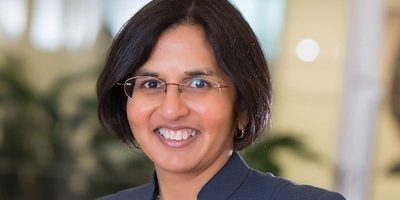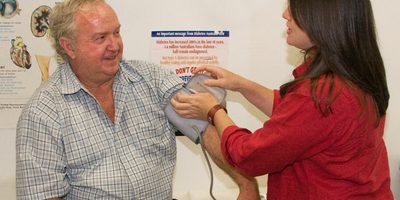
Professor Anushka Patel, Chief Executive Officer
When Anushka accepted the position of Senior Research Fellow at The George Institute in 2001, she would have been completely unaware of the impact she was set to have at her new workplace. She commenced work on her PhD in the Institute’s cardiovascular division, focused on identifying the major cardiovascular risk factors in the Asia Pacific Region, work for which she received the University of Sydney’s Peter Bancroft Prize.
While conducting her PhD research, Anushka was charged with leading the ADVANCE trial – the largest global study of type 2 diabetes ever undertaken, an achievement that she says is a career highlight given the impact the research results have had across the world.
Anushka has held several leadership roles as Director of the Cardiovascular Division, Senior Director and Chair of the Chronic and Critical Care Theme, and her contribution to research in India also saw her take up the acting position of Executive Director of The George Institute India in 2008. Anushka is now Chief Scientist, where she oversees the global research program for The Institute.
Born in Uganda, Anushka migrated to Australia at six years of age. Starting Medical School at 16, she received her cardiology training at Royal Prince Alfred Hospital before completing her Master of Science in Epidemiology at Harvard University.
Before joining the Institute, Anushka coordinated important research into coronary balloon angioplasty for patients who have suffered severe heart attack. Her work in these early days directly influenced clinical practice.
Anushka remains deeply passionate about her clinical work and continues to practice as a cardiologist. “I enjoy my clinical work and it provides a lot of relevance to my research. Even though I am now predominantly a researcher, the day I qualified as a specialised cardiologist remains a major milestone for me.”
“The George Institute is now a truly global organisation and with that, major opportunities to continue to produce high-quality research evidence that directly influences policy and practice. Increasingly the health problems facing all regions of the world are becoming increasingly similar – global problems requiring global solutions, and The George Institute is ideally placed to provide some of these solutions.”




